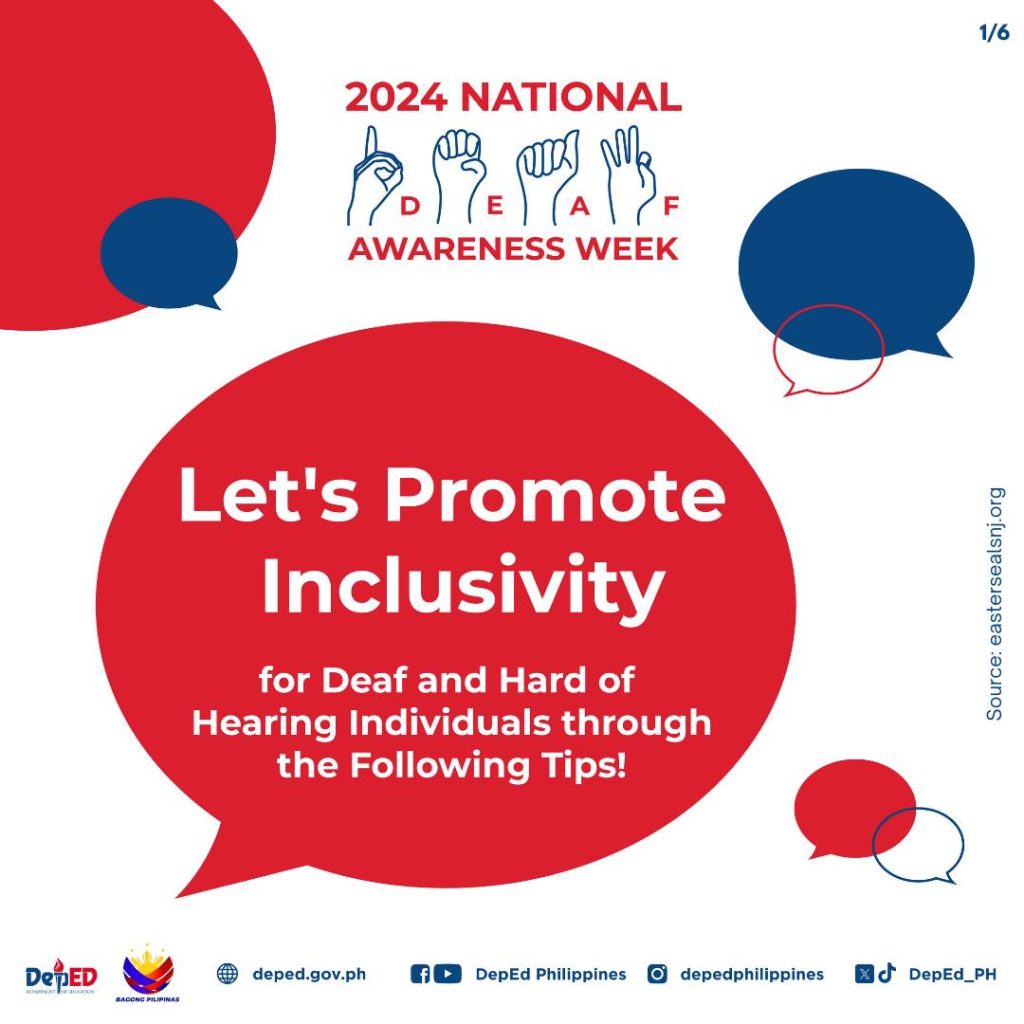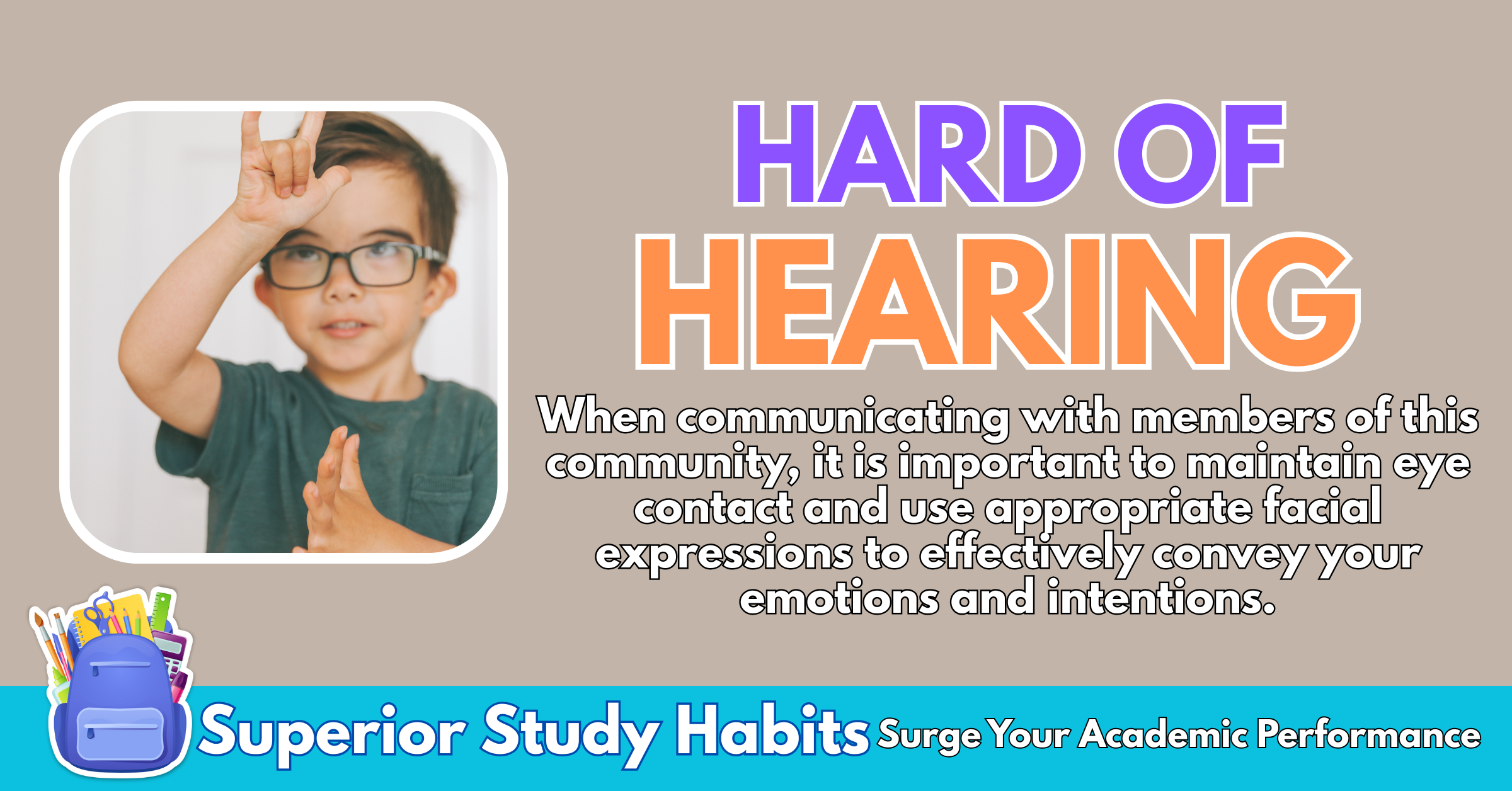5 Things You Need to Keep in Mind to Foster Inclusivity for the Deaf and Hard-of-Hearing Community
As DepEd joins in the National Deaf Awareness Week celebration, everyone is reminded to promote awareness and acceptance for the concerned individuals.
Here are 5 things you need to keep in mind to foster inclusivity for the deaf and hard-of-hearing community. Keep reading.

Table of Contents
What is National Deaf Awareness Week
As the National Deaf Awareness Week celebration concluded, the Department of Education (DepEd) reminded everyone of the importance of continuing to promote awareness and acceptance for the deaf and hard-of-hearing community.
In the Philippines, National Deaf Awareness Week is celebrated annually during the second week of November, as proclaimed under Presidential Proclamation No. 829 issued in 1991.
This week aims to raise awareness about the deaf and hard-of-hearing community and promote their inclusion in society.

Goals of National Deaf Awareness Week
The observance of this event aims to foster an environment where individuals with deaf disabilities can lead productive lives.
It seeks to raise awareness across society about the needs of the deaf community while emphasizing that many disabilities can be prevented.
Furthermore, it highlights the importance of early detection and timely, appropriate interventions when such disabilities are present.

Tips to Foster Inclusivity for the Deaf and Hard-of-Hearing Community
In line with this, the DepEd shared some tips on how to foster inclusivity for the deaf and hard-of-hearing community without offending their feelings.
Educate yourself
Understanding the history, culture, and challenges faced by the deaf and hard-of-hearing community is a significant step toward truly comprehending and supporting them.
Maintain eye contact and facial expressions
When communicating with members of this community, it is important to maintain eye contact and use appropriate facial expressions to effectively convey your emotions and intentions.
This is essential for building a strong connection with them.
Use clear and simple language
Use simple and clear words when communicating with them, whether spoken or written. Whenever possible, avoid using jargon, slang, or overly informal language.
Respect communication preferences
It is important to ask members of the deaf and hard-of-hearing community about their preferred means of communication.
Some may prefer using sign language, while others may be more comfortable with lip reading, writing, or technology-assisted methods.
Learn basic FSL
Whenever possible, take the opportunity to learn Filipino Sign Language (FSL).
By doing so, you demonstrate support for the community and show genuine interest in understanding their means of communication.
Success Stories
Success Strategies
News to Your Inbox
Fresh insights and exclusive perks delivered straight to your inbox. Sign up now.



![Pinoy Student Researchers Clinch Platinum Award at International Competition in Taiwan [Consumer Revolution] 4 Pinoy Student Researchers Clinch Platinum Award](https://superiorstudyhabits.com/wp-content/uploads/2025/01/studyhab8-8.png)



![[Key Secrets Disclosed] Make Learning Powerfully Exciting with Storytelling 8 Make Learning Powerfully Exciting with Storytelling](https://superiorstudyhabits.com/wp-content/uploads/2025/04/study-11.png)


